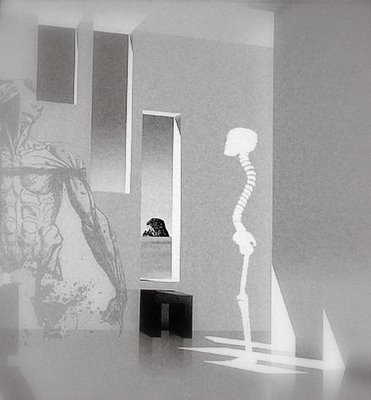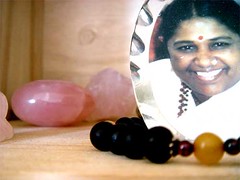
O atual modelo produtivista, baseado na lógica do lucro e do curto prazo, está esgotando o capital natural do planeta, adverte estudo encomendado pela Organização das Nações Unidas (ONU), que envolveu 1.360 cientistas de 95 países. Segundo eles, a ameaça de colapso ambiental pode se concretizar ainda neste século. Um estudo realizado a pedido do secretário-geral da Organização das Nações Unidas (ONU), Kofi Annan, alerta que o planeta corre o sério risco de sofrer um colapso ambiental ainda neste século se medidas enérgicas não forem tomadas para reverter o atual quadro de destruição dos recursos naturais. Segundo o estudo, divulgado nesta quarta-feira (30), cerca de 60% de todos os ecossistemas do planeta estão degradados ou sendo usados de um modo não sustentável, o que pode provocar um colapso ambiental global em um período de 50 anos. Intitulado "Avaliação Ecossistêmica do Milênio" (AEM), o estudo começou em 2001, reunindo 1.360 especialistas de 95 países. As perspectivas para o futuro próximo são alarmantes, alertaram os pesquisadores, enfatizando que a destruição de 15 dos 24 ecossistemas do mundo causará o surgimento de novas doenças, escassez de água, da pesca e aparição de zonas mortas no litoral.Esse estudo resultou em um dos relatórios mais completos e atualizados sobre a situação do meio-ambiente no planeta. E ela não é nada boa, garantem seus autores. Um dos trechos do relatório , intitulado "Vivendo além dos nossos meios - O capital natural e o bem-estar humano", afirma: "dentre os problemas mais sérios identificados por esta avaliação estão as condições drásticas de várias espécies de peixes, a alta vulnerabilidade de 2 bilhões de pessoas vivendo em regiões secas e a crescente ameaça aos ecossistemas das mudanças climáticas e poluição de seus nutrientes". Os pesquisadores utilizaram a imagem de alguém que está vivendo com tempo emprestado, para descrever o modo como estamos convivendo com o meio ambiente. Um dos casos mais graves, segundo eles, está no uso da água: "o uso do recurso de água em um ritmo muito maior do que se gera se faz às custas de nossos filhos"."Já estamos vivendo essa ameaça "Os resultados desse estudo foram apresentados nesta quarta simultaneamente em diversos países. No Brasil, um seminário marcado para o dia 2 de abril, discutirá as implicações de suas conclusões, no auditório do Instituto de Pesquisas Energéticas e Nucleares (Ipen). Em setembro, os pesquisadores responsáveis pelo projeto divulgarão outros cinco relatórios técnicos, com mais de 2,5 mil páginas contendo estudos sobre as relações entre os ecossistemas globais e o bem-estar humano. Além disso, no primeiro trimestre de 2006 está prevista a divulgação de outros 33 estudos realizados em diferentes regiões do planeta. A idéia dos pesquisadores é fazer a máxima divulgação possível deste estudo com o objetivo de, entre outras coisas, sensibilizar a população e as autoridades governamentais que os riscos são reais e não uma peça de ficção científica produzida por cientistas alarmistas ou ambientalistas radicais. Nós já estamos vivendo essa ameaça, garantem.Um dos coordenadores da pesquisa, o cientista Harold Mooney, da Universidade de Stanford, resumiu do seguinte modo a gravidade do problema: "no último meio século nós alteramos as estruturas dos ecossistemas globais em uma velocidade mais rápida do que em qualquer outro período da história". Essas alterações, por um lado, foram fruto da intervenção humana para aumentar a área e a produtividade das áreas de produção de alimentos, o que normalmente é apontado como um fator de progresso. O problema é a forma como isso foi feito, com a criação de grandes áreas de monocultura (destruidoras da biodiversidade) e com um uso intensivo de agrotóxicos. Um dos resultados desse modelo, além da destruição da biodiversidade, é o envenenamento de fontes de água ou mesmo seu desaparecimento. Além disso, cada espécie animal e vegetal extinta representa um fator de desequilíbrio para ecossistemas inteiros.Ecossistemas ameaçados O estudo encomendado pela ONU faz uma radiografia desses ecossistemas ameaçados. Ele aponta, por exemplo, que entre 10 e 30% das espécies animais enfrentam perigo de extinção. O desmatamento, uma das causas desta ameaça, é responsável também pelo ressurgimento de doenças que estavam sob relativo controle e pelo surgimento de novas enfermidades. Os cientistas citam o caso da malária, que afeta hoje cerca de 11% de todos os doentes no continente africano. E, além do pesado custo humano, esse fato tem repercussões econômicas importantes. Segundo os pesquisadores, se a doença tivesse sido erradicada há 35 anos, a economia do continente africano teria aumentado aproximadamente 150 bilhões de euros. Como as cifras costumam sensibilizar mais as autoridades do que relatos de dramas humanos, o estudo cita ainda os impactos das mudanças climáticas sobre a agricultura especialmente.O resumo da obra é o seguinte: o capital natural da Terra está sendo gasto rapidamente pelos seus habitantes, que se comportam como herdeiros perdulários que gastam em uma geração o que as anteriores acumularam. Graças a esse comportamento, mais 10 ou 20% das florestas do mundo serão transformadas em lavoura e pasto até 2050, conforme projeção do estudo. O predomínio da lógica do lucro sobre todas as outras vai apresentar uma conta salgada muito em breve, advertem os cientistas. Na verdade, já está apresentando, mas ela vem sendo rolada como se nada fosse acontecer. O que fazer? Uma das recomendações do estudo dirige-se aos economistas: eles devem rever seus métodos de fazer contas e incluir em seus cálculos fatores que causam espanto e riso hoje entre autoridades econômicas. Fatores como o valor da polinização de lavouras por insetos ou o valor de uma área de florestas destruída por uma barragem ou por uma nova lavoura de soja.A ideologia do progresso a qualquer custo, denuncia o resultado do estudo, contamina governos à esquerda e à direita, que, cada vez mais, comportam-se do mesmo modo. A maneira como está acontecendo a liberação de transgênicos no Brasil é um exemplo disso. A lógica do fato consumado e o predomínio da lógica do lucro máximo a curto prazo estão jogando pela janela princípios básicos de precaução. Uma das conclusões do relatório divulgado nesta quarta afirma que a humanidade "precisa relaxar as pressões sobre a natureza" e adotar "mudanças radicais na forma com que tratamos o planeta". Se tiverem o destino dos últimos estudos do gênero, essas conclusões receberão o apoio retórico de algumas autoridades e logo cairão no esquecimento. Quem quiser conhecê-las mais de perto pode acessá-las no endereço: http://www.millenniumassessment.org. É uma leitura que pode tirar o sono.

















